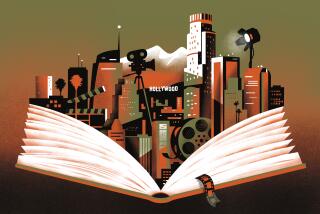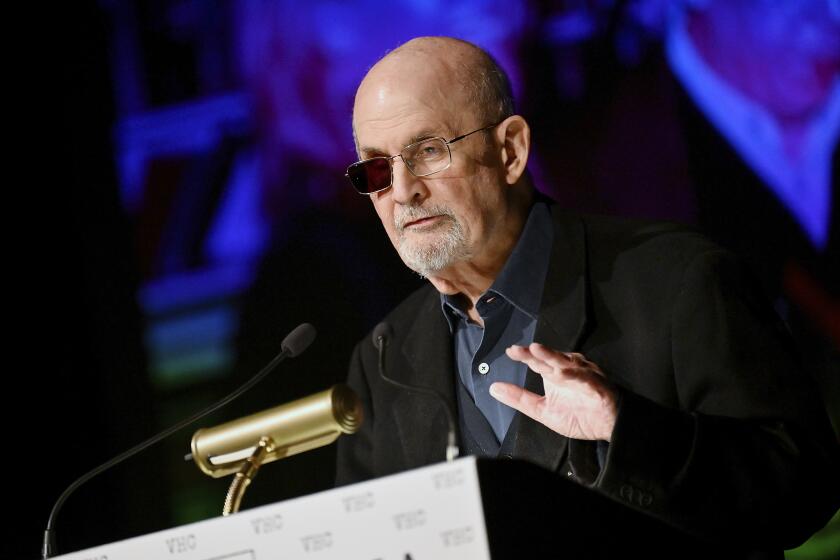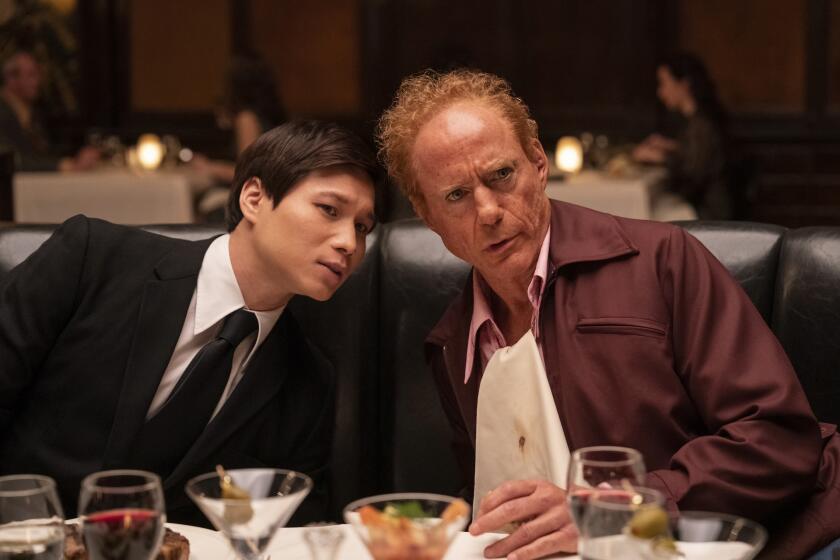Suspended Between Honor and Justice
Exactly a half-century ago, when the victory over fascism in Europe was still fresh and the brave new world to come was only beginning to reveal itself, the United States was flush with pride and a sense of unlimited promise. It is America in 1947 where the celebrated journalist and novelist Pete Hamill sets his latest book, “Snow in August,” an endearing if sometimes unsettling fairy tale in which both the nation and one remarkable young man come of age under remarkable circumstances.
“Snow in August” focuses on Michael Devlin, a bright and appealing kid who is growing up in a poor Irish neighborhood of Brooklyn that cowers in fear of a local tough named Frankie McCarthy and his gang, the Falcons. Michael is an entirely benign figure, gifted and caring; he is, quite literally, an altar boy.
But Michael Devlin has been taught an entirely different catechism on the mean streets of Brooklyn, an article of faith that harks back to the Irish homeland: “Scum of God’s sweet earth informers,” says Michael’s beloved mother. “The bloody British used them against us for centuries.” And so, when Michael witnesses the acts of violence by which the Falcons terrorize the neighborhood, each crime more audacious and bloodthirsty than the one before, he refuses to “rat out” the criminals, even when they draw his own blood.
With the assured tone of a gifted storyteller and a big, big heart, Hamill decorates his tale with the badges and emblems of a now-distant era in American history. Young Michael idolizes his fallen father, an infantryman who died in the Battle of the Bulge; the lineup of the Brooklyn Dodgers and especially their newest player, Jackie Robinson, who symbolizes the promise of freedom; and, above all, the comic-book hero Captain Marvel. And we meet Michael at a moment when he desperately needs someone to come to his rescue, whether it’s the parish priest, Captain Marvel or the vengeful ghost of his own father.
“He pictured his father getting his M-1,” the author writes of Michael’s daydreams, “and going hunting for the Falcons.”
As it turns out, Michael finds a mentor rather like the one who taught Captain Marvel how to turn himself into a superhero by uttering the magic word “Shazam!” But Michael’s mentor is an immigrant rabbi and Holocaust survivor named Judah Hirsch, who recruits the altar boy as a “Shabbos goy”--a Gentile who performs chores in a synagogue on the Sabbath when observant Jews are forbidden to work--and teaches his unlikely protege quite a different language.
“Got shtroft, der mentsh iz zikh noykem,” mutters Michael in Yiddish. “God punishes, man takes revenge.”
Hamill spins his tale out of the threads of myth and legend, drawing on both Irish and Jewish folklore, the mystical tradition known as Kabbalah and such thoroughly American icons as Brooklyn and baseball. One fanciful figure of traditional Jewish lore looms up with special intensity and meaning--the golem, an early Jewish version of Frankenstein’s monster, who was reputedly fashioned out of clay and brought to life by a pious rabbi centuries ago to protect and vindicate the oppressed Jews of Prague.
“I’ve moved through fog-bound streets and secret tunnels, seen two-headed alligators and unicorns, watched angels carry palaces from distant cities,” muses Michael about his own flights of fancy after listening to the tales told by Rabbi Hirsch. “I’ve seen cathedral spires rise in the air like rockets. I’ve seen rocks turn into roses.”
“Snow in August” insists on confronting us with the old but often-neglected truth that every decent man and woman, every worthwhile experience, every value of civilization, is at grave risk when bad people and the evil they do in the world go unchallenged. And yet, after Hamill has set up a dilemma that strikes us as urgent and compelling, he slips into a moment of pure fantasy for the climactic moment of his book. And so, in a real sense, he leaves his own tough question unanswered: If Michael Devlin refuses to go to the police and testify against Frankie McCarthy and the Falcons, what should he do, what can he do, to defend himself and his loved ones from their oppressors?
“Snow in August” ends with a scene right out of a fairy tale, one that put a lump in my throat and a tear in my eye, but renders the book rather toothless.
More to Read
Sign up for our Book Club newsletter
Get the latest news, events and more from the Los Angeles Times Book Club, and help us get L.A. reading and talking.
You may occasionally receive promotional content from the Los Angeles Times.






